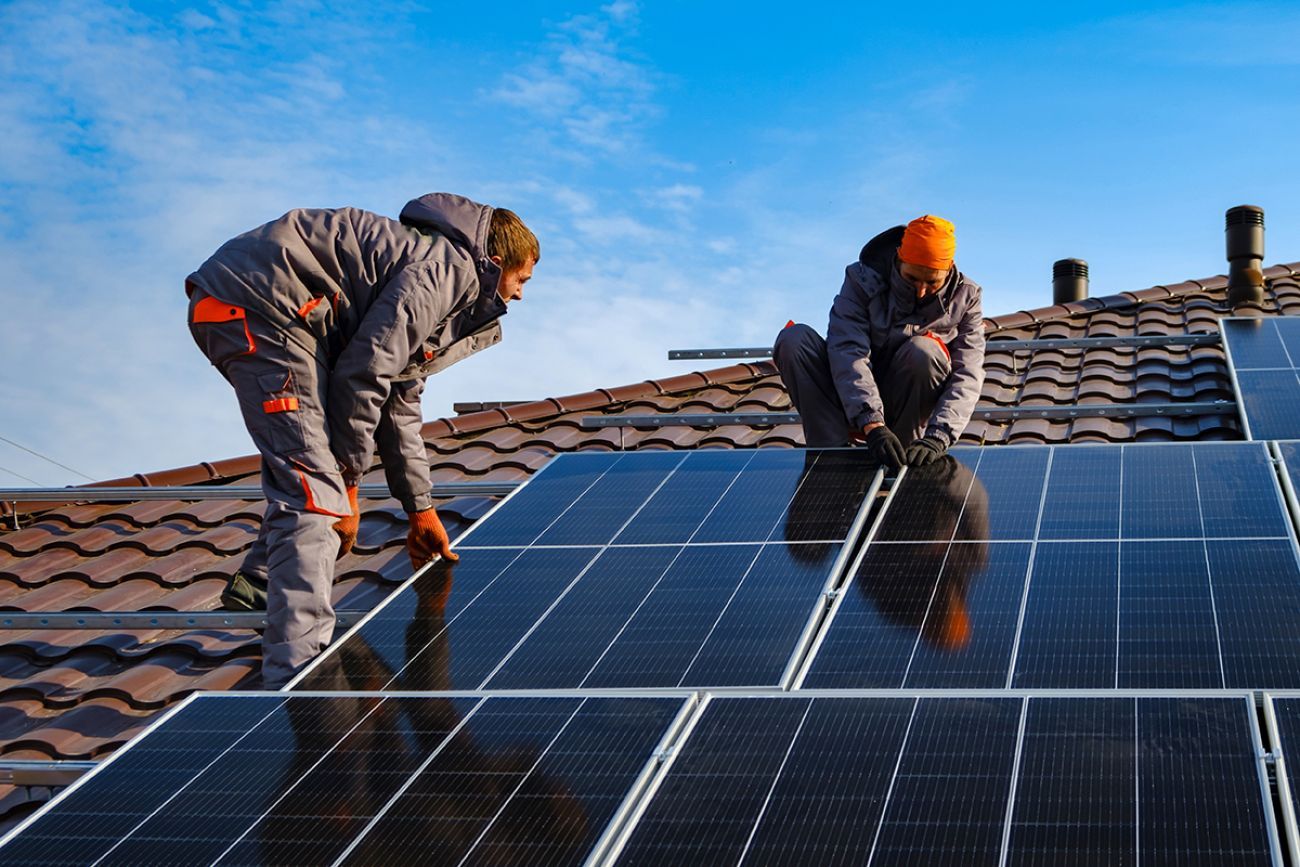How fast should Michigan ditch fossil fuels? Lawmakers debate 2040 deadline

- A state Senate committee took testimony Wednesday on a bill that would mandate carbon-free energy in Michigan by 2040
- Environmentalists say that’s too slow, while business interests and Republican lawmakers are concerned it’s too aggressive
Is Michigan’s proposed 2040 deadline for utilities to go carbon-free too soon, or not soon enough?
That was a central question at a Senate Energy and Environment Committee hearing Wednesday in Lansing, the first since Democratic lawmakers announced changes to a sweeping bill package that would put Michigan utilities on an aggressive timeline to achieve 100-percent carbon-free energy.
An early version of that bill set the proposed deadline at 2035, but the deadline has since been moved to 2040. Changes are also being made to SB 273, a bill that would require utilities to prioritize energy efficiency more heavily. New drafts have not yet been posted to the Legislature’s website.
Related:
- Michigan Democrats push carbon-neutral energy goal back 5 years to 2040
- Michigan Democrats: Utilities must use 100% carbon free energy by 2035
- Whitmer pushes clean energy, paid leave in Michigan; offers few specifics
Lawmakers took more than three hours of testimony on the bills Wednesday before a packed crowd inside the Capitol, with environmentalists urging swifter action while Republican lawmakers and business groups questioned whether the proposed mandates are too aggressive.
The testimony addressed the following three bills, which are part of a larger package that aims to push Michigan more urgently toward renewable energy:
- SB 271 would put utilities on a 2040 deadline to achieve 100 percent carbon free energy, with goalposts along the way.
- SB 273 would ramp up requirements for electric and gas utilities to prioritize energy efficiency by boosting so-called “energy waste reduction” targets.
- SB 502 would expand the Michigan Public Service Commission’s (MPSC) authority to prioritize a host of new goals in its decision making, from climate to energy affordability and reliability.
The package got support from the chair of the MPSC, the state’s utility regulatory body. Commission Chair Dan Scripps called the legislation’s decarbonization goals ambitious but achievable, and said they would make the state a “national clean energy leader” and ensure “our actions meet the urgency of a changing climate.”
But Republican lawmakers on the committee raised concerns that Michigan could be moving too fast, and said they wanted more information about how much it would cost Michiganders to switch from fossil fuels to renewable energy.
The decisions reflected in the bills “will cause hardship for the people that we represent,” said John Damoose, R-Harbor Springs, as he questioned whether action on Michigan’s part would make an impact on global climate change.
“We're gonna make these investments and pay these costs,” Damoose said. “What do we get on a worldwide scale when we're talking about one state in one country?”
Supporters of the bill pushed back on the notion that moving faster toward renewables would come at a cost to Michiganders.
The cost of wind and solar energy has been declining, Scripps noted, and utilities already routinely choose renewables over fossil fuels. Federal funding to support the energy transition further reduces costs, he said.
Establishing a 2040 deadline, Scripps said, “simply moves us more quickly in the direction that the majority of utilities are already headed.”
The state’s largest utilities, DTE and Consumers Energy, have set goals to be carbon neutral by 2050 and 2040, respectively.
The proposed statewide 2040 deadline would come with interim deadlines of 50 percent renewable energy by 2030, 60 percent by 2033, and 80 percent carbon-free energy by 2035. The MPSC would have power to adjust deadlines for individual utilities, if reliability concerns, supply chain constraints or other issues hinder their progress.
Environmentalists contend Michigan needs to move faster, and urged lawmakers to move the deadline back to 2035.
“Those are the targets that climate modeling shows that we need to hit in order to stay below (2 degrees Celsius) of warming,” said Charlotte Jameson, chief policy officer with Michigan Environmental Council.
Global climate scientists have long warned that if global air temperatures rise more than 2 degrees Celsius (3.6 degrees Fahrenheit) above temperatures Earth experienced before the industrial revolution, the world will face dangerous climate extremes such as catastrophic flooding, wildfires, heat waves, drought, famine and sea level rise.
Beyond the debate over deadlines, some environmental groups criticized parts of the legislation dictating which energy sources utilities would be allowed to use instead of coal and gas. Juan Jhong Chung, climate justice director with the Michigan Environmental Justice Coalition, expressed “significant concerns” over provisions that include allowing utilities to use carbon capture and storage — the tactic of intercepting carbon dioxide emissions and storing it underground.
Business interests testifying Wednesday expressed their own qualms about the legislation — namely, the concept of requiring rather than encouraging utilities to ditch fossil fuels.
“We urge caution on moving quickly on energy policy rooted in mandates,” said John Walsh, president and CEO of the Michigan Manufacturing Association.
The Michigan Chamber of Commerce warned that Michigan’s existing reliability issues could worsen if fossil fuel plants are retired too early amid a push to renewable energy sources such as intermittent wind and sunshine.
“Why we talk about fossil fuel generation,” said Mike Alaimo, the Chamber’s director of environmental and energy affairs, “isn’t just because we love natural gas, it’s because there are very real benefits realized by ensuring we have enough dispatchable energy.”
Committee Chair Sen. Sean McCann, D-Kalamazoo, said lawmakers are still taking feedback on the bills. In an earlier interview with Bridge, he said the goal is to move them through the Legislature this fall.
Michigan Environment Watch
Michigan Environment Watch examines how public policy, industry, and other factors interact with the state’s trove of natural resources.
- See full coverage
- Subscribe
- Share tips and questions with Bridge environment reporter Kelly House
Michigan Environment Watch is made possible by generous financial support from:
Our generous Environment Watch underwriters encourage Bridge Michigan readers to also support civic journalism by becoming Bridge members. Please consider joining today.
See what new members are saying about why they donated to Bridge Michigan:
- “In order for this information to be accurate and unbiased it must be underwritten by its readers, not by special interests.” - Larry S.
- “Not many other media sources report on the topics Bridge does.” - Susan B.
- “Your journalism is outstanding and rare these days.” - Mark S.
If you want to ensure the future of nonpartisan, nonprofit Michigan journalism, please become a member today. You, too, will be asked why you donated and maybe we'll feature your quote next time!






